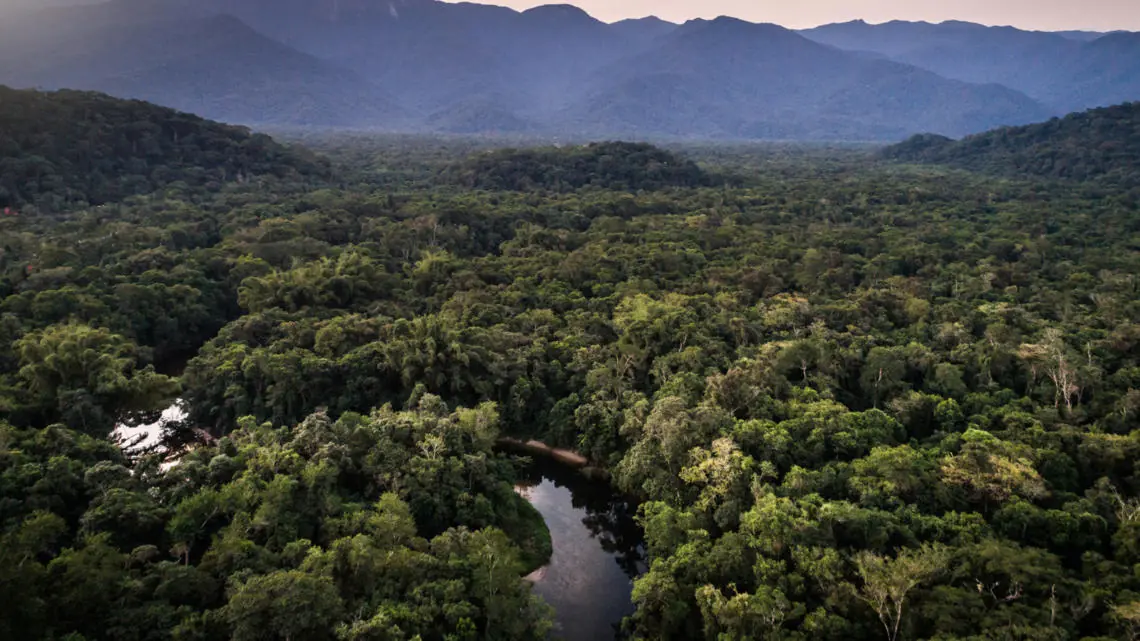Joint call at IUCN World Congress demands governments act to secure a nature-positive world by 2030
Marseille (France) 7 September 2021 – Today, the World Business Council for Sustainable Development (WBCSD) with other organizations representing all corners of society from around the world have come together to issue an unprecedented joint call for governments to strengthen a draft global biodiversity agreement.
The post-2020 Global Biodiversity Framework is currently being negotiated by governments under the auspices of the UN Convention on Biological Diversity. It presents a once-in-a-decade opportunity for the world to secure a global agreement to halt and reverse the loss of nature, but the pace of negotiations has been slow and ambition lacking.
The growing concern is from leading organizations over the lack of ambition displayed by governments negotiating the agreement. NGOs, faith groups, local and regional governments, Indigenous Peoples, academics, youth, business coalitions and artists are united in calling for governments to deliver an ambitious agreement at COP15 that reverses biodiversity loss to secure a nature-positive world by 2030.
Human activities are causing a catastrophic loss of biodiversity, with one million species now threatened by extinction. This destruction of nature undermines its ability to support us, placing human health and livelihoods at risk.
The signatories, which include leading academics, stress that reversing biodiversity loss is a moral responsibility, but it will also help avoid future pandemics, fight climate change and land degradation, and enhance environmental security. Continued loss of nature threatens not only half of global GDP, but also our opportunities to uphold human rights, and reduce social and gender inequalities.
The strong presence of humanitarian and development organizations among the signatories reflects biodiversity loss’ role in undermining human security and the need for connected action for nature and people.
Crucially, the call to governments highlights the commitments made by many world leaders in the past year to reverse biodiversity loss by 2030, through the Leaders’ Pledge for Nature and the G7 2030 Nature Compact. Leaders are called on to deliver an ambitious global biodiversity agreement which acts on these commitments.
To secure a nature-positive world by 2030, governments are urged to include a nature-positive mission in the post-2020 global biodiversity framework, and to ensure a rights-based approach, including to nature-based solutions and to conserving 30% of land, freshwater and seas by 2030.
Governments are further called on to ensure the final agreement tackles the drivers of biodiversity loss – including unsustainable agriculture and food systems, forestry, fisheries, infrastructure, and extractives – by securing a just transition that halves the footprint of production and consumption by 2030. Other key areas of the draft agreement that need strengthening include ensuring adequate financial resources and an effective implementation mechanism.
Diane Holdorf, Managing Director, Food & Nature, WBCSD, said: “The COVID-19 pandemic and connected economic crisis have shown governments and business the necessity to transform all systems to net-zero before 2050 and become nature positive by 2030. The scale and scope of business action needs an ambitious nature policy framework that puts in place clear targets, the right incentives and support mechanisms. Business action today, to halt and reverse nature loss, needs to become transformational through investments and collaborations that contribute to an equitable, net zero and nature positive future. An ambitious Global Biodiversity Framework will help this become a reality.”
Marco Lambertini, Director General of WWF International, said: “The world has woken up to the enormous threat nature loss poses, not only to the natural world we have the duty to coexist with, but also to human lives and livelihoods. The post-2020 global biodiversity framework offers governments a once-in-a-decade opportunity to change course, yet the draft agreement falls short in a number of key areas, including in failing to address the economic drivers of nature loss and the re-direction of financial flows towards a nature-positive transition. Diverse voices from across society are sounding the alarm that commitments from world leaders are not translating into a strong plan of action. Governments must urgently work to strengthen the draft agreement ahead of COP15 to secure a nature-positive world by 2030.”
Related WBCSD publications:
- WBCSD Recommendations on the CBD Post-2020 Global Biodiversity Framework’s Draft 1
- Accelerating business solutions for climate and nature – Report I: Mapping nature-based solutions and natural climate solutions
- COVID-19: a dashboard to rebuild with nature
- Dasgupta Review on the Economics of Biodiversity (2021) – Business Summary
- Fifth Global Biodiversity Outlook report by the United Nations Convention on Biological Diversity (CBD) – Business Summary
- World Economic Forum’s (WEF) second report of the New Nature Economy Report – Business Summary
- Insider Perspective: Global Commons Alliance Nature Target Prototyping
About WBCSD Nature Action work:
In 2020, WBCSD launched Nature Action as a cross-cutting project to support members as they engage in and act on the nature agenda. It was designed to build business alignment, solutions and collective action in three key socio-economic systems: food, land and ocean use; infrastructure and the built environment; and energy and extractives. Together with members and key stakeholders, the project: (1) creates opportunities for engagement and assists members in implementing frameworks such as science-based targets for nature (SBTN) and Taskforce on Nature-Related disclosures (TNFD); (2) identifies sectoral narratives and roadmaps supporting nature positive action, including nature-based solutions and; (3) elevates members’ solutions and business leadership in key nature and climate events. This builds on over 20 years of WBCSD and member experience in business and biodiversity and corporate ecosystem service assessment and valuation.
Original version by WWF: https://wwf.panda.org/?3524966/Unprecedented-number-of-organizations-voice-concern-at-low-ambition-of-biodiversity-negotiations
WBCSD news articles and insights may be republished in accordance with the Creative Commons Attribution-NonCommercial-NoDerivatives 4.0 International Public License, and in accordance with our Privacy Policy. All Content must be featured with due credits.
Outline
